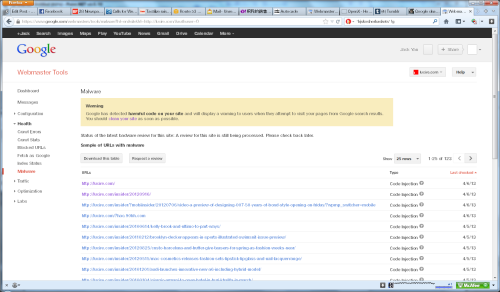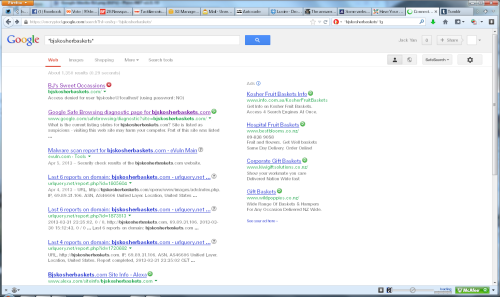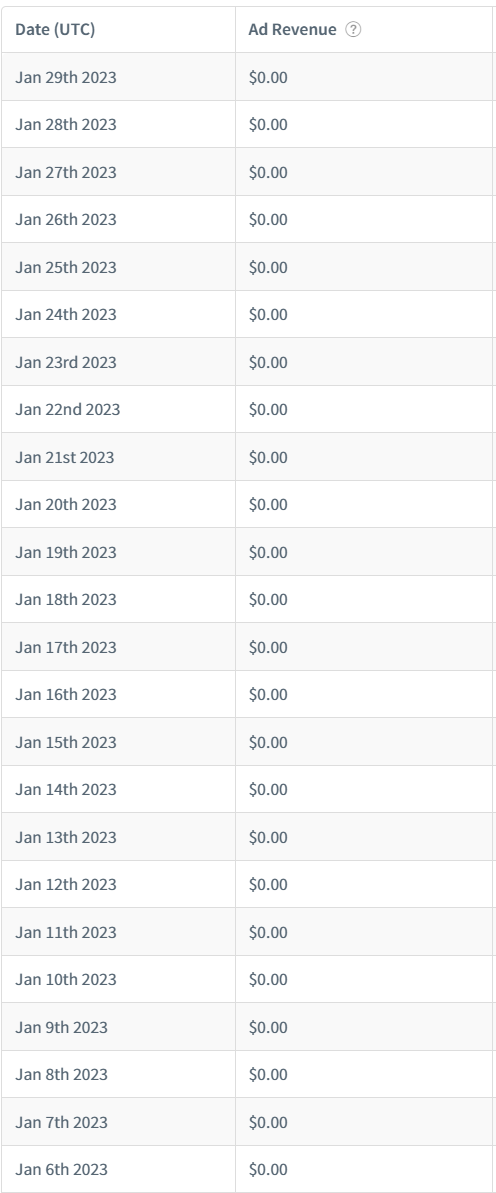Google continues to throw up big red flags to anyone visiting Lucire’s website today, although its own Webmaster Tools page reveals that it has not found any problems since Saturday:
Given that we had sewn up the server on Saturday, and deleted every instance of the hack, then Webmaster Tools’ inability to find dodgy pages is no surprise.
However, Google’s continued insistence that something is wrong is damaging to our reputation, and it’s now affecting the sites of some of the team who linked to us. Those using its Chrome browser are getting the biggest warnings of all, if our feedback is accurate.
It’s not the first time we’ve had to battle Google over things like this: as those of you who remember the battle with Blogger know, Google people can be very stubborn. That last time, we gave a link proving the Google support guy was wrong and his solution was just to refuse to look at it.
But even this time, the code that Google identifies as being problematic is not: it’s straight OpenX code, which they have had no trouble with in the past. I’ve gone and replaced some of it with regenerated OpenX code that differs only with the random number being generated, which in theory should make no difference. You never know, and it’s better than sitting around and doing nothing.
And since Google has cleared the ad server where the hack took place, it’s crazy that it continues to block sites that simply have links to a clean server.
With Autocade, it now just says we have problems but refuses to identify just what they are.
The greatest irony is that our ad code often links to a Google Doubleclick ad, although, as revealed yesterday, Google’s not too fussed if third-party advertisers using Doubleclick host malware. They make money, the third party makes money, and the only people who lose are the honest folks like us.
It’ll be Monday 9 a.m. on the US west coast soon, so let’s hope things get back to normal.





*sigh* I feel your frustration, Jack, although I think my experience with Google specifically was perhaps more culpable on my part. Vu had to find a new search engine for We Heart Music, I think, because big media had done some cease and desist requests on the YouTube-hosted mashup videos I’d featured. I don’t think we even got a warning; just destroyed SEO.
I still like Google in some ways, but I think they are suffering a “too big to care” problem. I’m still considering a break to Zoho mail but I’m just overwhelmed with more pressing problems right now, many much more immediate.
The sad thing is, J., Google has continued to do this and it’s now day six. We have had advertising cancellations and enquiries from our clients. It’s not a good look, but the trouble is so many people drink the Google Kool-Aid. It’s easier to believe a Google warning than an honest guy who says, with plenty of proof, ‘Google gets it wrong—and often does.’
These come to mind:
http://www.zdnet.com/netseer-suffers-hack-triggers-google-malware-warnings-7000010776/
http://www.mercurynews.com/business/ci_22556675/google-chrome-browser-blocks-websites-malware-warnings-including
I hope you manage to deal with some of your more urgent problems shortly.